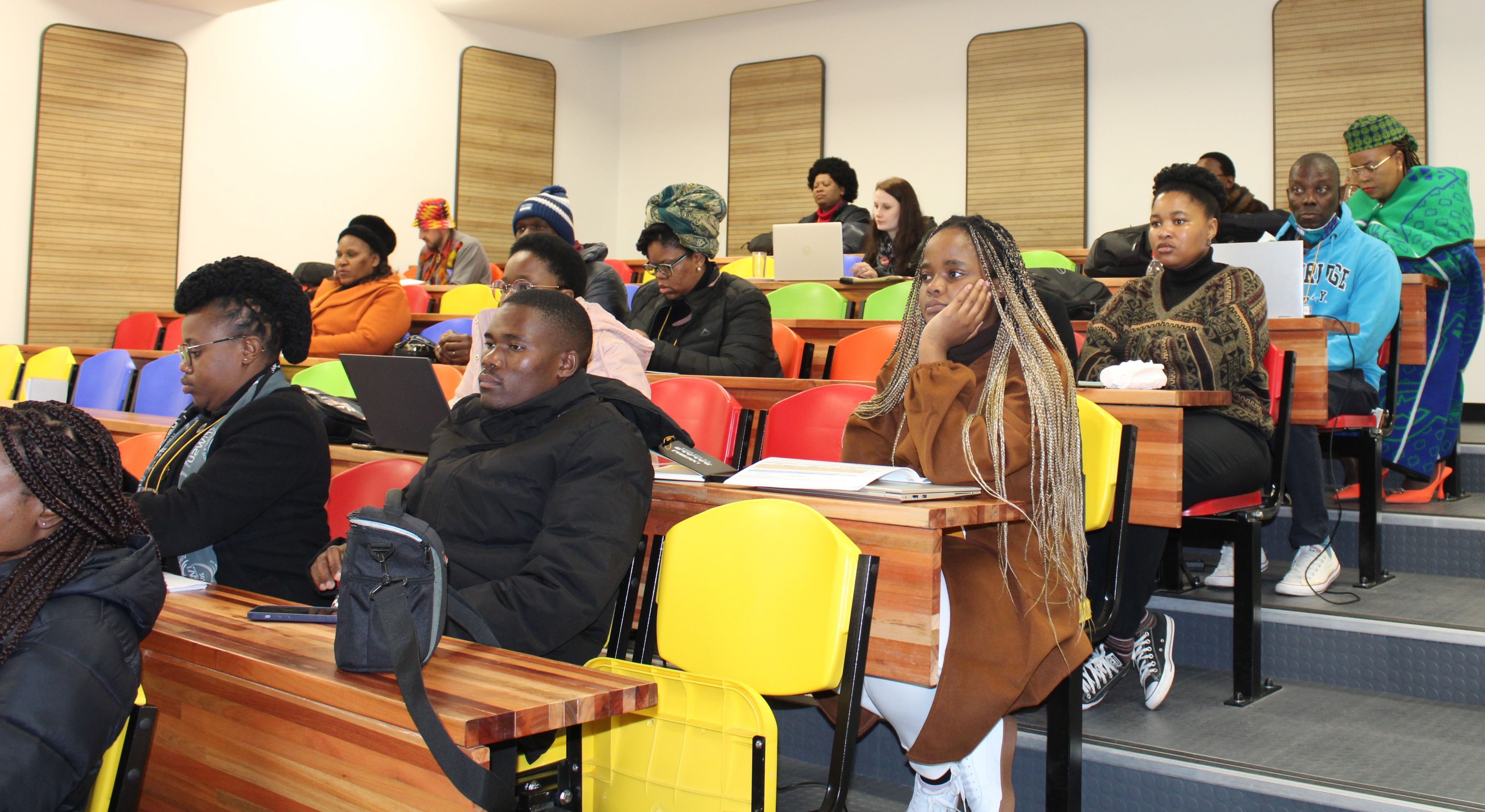PRESERVATION OF AFRICAN LANGUAGES AT THE CENTRE OF 2023 SALALS CONFERENCE

Linguists from universities across Africa assembled for the Southern African Linguistics and Applied Linguistics Society (SALALS) 2023 conference hosted by Walter Sisulu University’s Department of Arts in Mthatha.
Linguistics explores the structure, meaning and use of language, uncovering how humans communicate. It aids in understanding cultural diversity, language acquisition and the impact of language on society by analysing language patterns.
SALALS is broadly dedicated to promoting the disciplines of Linguistics, Applied Linguistics and Language Practice and fostering research excellence in linguistics and language related disciplines in the Southern African region and for all the languages of Southern Africa.
The four day conference saw discerning language researchers deliberate under the conference theme: Standardizations, descriptions, and delimitations of Southern African languages: past, present and future.
WSU acting Deputy Vice-Chancellor: Academic Affairs and Research, Prof Mashudu Davhana-Maselesele said: “WSU is honoured to host the SALALS conference this year. Language, as we all know is a fundamental aspect of humanity, our identity, and a bridge that connects all of us from diverse backgrounds.”
The conference afforded students, academics, researchers, and language practitioners in various fields and institutions an opportunity to share their research findings and recommendations with others on the different aspects of linguistics.
The different research topics presented on the conference touched on phonology, phonetics, morphology, syntax, lexicography and semantics. The researchers deliberated on language policies, signages and complexities of multilingual environments that continue to favour the English language.
SALALS chairperson, Prof Herculene Kotze, said: “I look forward to the meticulously curated programme that reflects the organising committees’ dedication to advancing knowledge, promoting dialogue and fostering collaborations.”
Professor Bassey Antia of Applied Linguistics at the University of Western Cape opened the conference with a keynote address on colonial hegemony in school textbooks: lessons from apartheid South Africa for decolonising the curriculum.
“Questions about what exactly is entailed by a decolonised curriculum are posed just as calls are made to decolonise the curriculum. These questions may well be an opportunity to focus on the micro-politics of knowledge production and instructional materials that spotlight the colonial in need of decolonisation.”
WSU academic and researcher, Sinoyolo Nokutywa, presented his paper on the improvement of safety rules on the roads by including the semiotic language of South African drivers on the K53 curriculum.
“We cannot run away from the fact that the flashing of lights and use of hazards on the roads does assist in minimizing accidents on the road. A driver can warn you of any obstruction on the direction you are headed to and you slow down your speed. These things are helpful and need to be added on the K53 curriculum to assist new drivers with the language,” said Nokutywa.
Linguistics enhances communication and mutual understanding. It facilitates language preservation, and promotes inclusive and effective intercultural interactions by reducing misunderstandings.
Topics presented at the conference discussed how language can be used to improve lives and emphasized on the preservation of African languages.
WSU academic and researcher, Dr Yolisa Madolo also presented her paper titled “Don’t force your language down our throats: A case study of language servitude in the workplace”.
Madolo spoke on how the speakers of indigenous languages bend backwards, learning and speaking English in order to serve the needs of neo-colonists, who demand to be addressed in English.
“The language injustices that happen in higher education need intervention, not only from the state, but within the Higher Education Institutions themselves. There is a tendency for colleagues who speak local languages to be expected to accommodate everyone speaking language research.
Khumalo spoke about how infrastructure is improving and new technologies are introduced as ways of communication and receiving information.
"In order for our languages to be well resourced as English, we need to start documenting them. Unfortunately the colonial enterprise is moving forward and the digital divide is set to exacerbate the status and role of African Languages," said Khumalo.
Khumalo continued to say that African Artificial Intelligence (AI) experts were warned of Artificial imperialism and that linguists need to build the infrastructure and input African languages.
"The colonial enterprise is continuing to evolve. Many AI programmes are from the global west and because of that, they do not attend to some linguistic descriptions that we find. For example, Chat-GPT is mainly in English, if you try and input anything in African languages it gives you wrong suggestions," said Khumalo.
The conference explored emerging trends and addressed current challenges experienced by academics in the field of linguistics.
By Anita Roji
